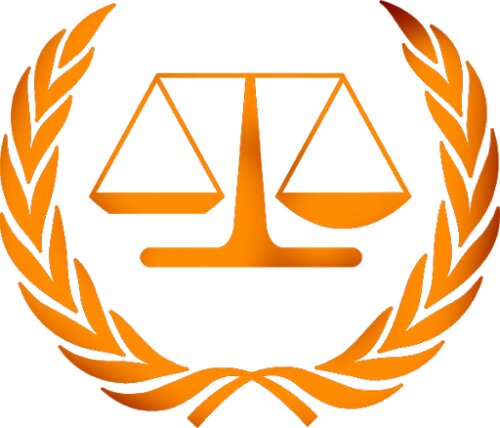ทนายความ กฎหมายเหมืองแร่ ที่ดีที่สุดใน ลาดกระบัง
แบ่งปันความต้องการของคุณกับเรา รับการติดต่อจากสำนักงานกฎหมาย
ฟรี ใช้เวลา 2 นาที
รายชื่อทนายความที่ดีที่สุดใน ลาดกระบัง, ประเทศไทย
1. เกี่ยวกับกฎหมายกฎหมายเหมืองแร่ในลาดกระบัง, ประเทศไทย
ลาดกระบังเป็นเขตในกรุงเทพมหานครที่มีกติกาด้านการใช้ที่ดินและการอนุรักษ์สิ่งแวดล้อมเข้มงวดสูง ก่อนจะทำกิจการเหมืองแร่ต้องผ่านกรอบกฎหมายกลางของประเทศ
กฎหมายหลักด้านแร่ของไทย ได้แก่ พระราชบัญญัติแร่ พ.ศ. 2510 ซึ่งกำกับการสำรวจ การขุด และการใช้แร่ โดยมีการแก้ไขเพื่อสอดคล้องกับมาตรฐานสิ่งแวดล้อมและความปลอดภัย
นอกจากนี้ กฎหมายสิ่งแวดล้อม เป็นส่วนสำคัญในการอนุมัติขั้นตอนต่างๆ เช่น การประเมินผลกระทบสิ่งแวดล้อม (EIA) ก่อนการเริ่มโครงการในลาดกระบัง
หน่วยงานหลักที่ดูแลเรื่องนี้ ได้แก่ กรมทรัพยากรธรณี ภายใต้ กระทรวงทรัพยากรธรรมชาติและสิ่งแวดล้อม (MNRE) ซึ่งมีอำนาจออกใบอนุญาตและตรวจสอบการปฏิบัติการ
ตามพระราชบัญญัติแร่ พ.ศ. 2510 การขุดและสำรวจแร่ต้องได้รับอนุญาตจากกรมทรัพยากรธรณี
ข้อมูลอ้างอิงและแนวทางเพิ่มเติม:
กระทรวงทรัพยากรธรรมชาติและสิ่งแวดล้อม • กรมทรัพยากรธรณี • กรุงเทพมหานคร
2. ทำไมคุณอาจต้องการทนายความ
แม้ลาดกระบังจะเป็นเขตเมืองใหญ่ กรอบกฎหมายด้านเหมืองแร่ยังต้องสอดคล้องกับแนวทางระดับชาติ และข้อกำหนดท้องถิ่น
- กรณีขอใบอนุญาตสำรวจหรือทำเหมือง ในลาดกระบัง คุณต้องผ่านกระบวนการยื่นคำขอ ร่วมกับการประเมินผลกระทบสิ่งแวดล้อมและการรับฟังความคิดเห็นของชุมชน
- กรณีข้อพิพาทที่ดินระหว่างผู้ประกอบการกับเจ้าของที่ดิน เกิดข้อถกเถียงเรื่องสิทธิใช้งานพื้นที่และการชดเชย
- กรณีถูกเรียกสิ่งอำนาจทางปกครอง เช่น การตรวจสอบการปฏิบัติตามเงื่อนไอนไอน์ของใบอนุญาตและมาตรการป้องกันมลพิษ
- กรณีผลกระทบต่อชุมชนและสิ่งแวดล้อม ความเห็นชุมชนและการประเมิน EIA มีบทบาทสำคัญในการตัดสินใจ
- กรณีการโอนหรือการต่ออายุใบอนุญาต มีขั้นตอนและเอกสารที่ซับซ้อน จึงควรมีทนายตรวจสอบ
- กรณีข้อร้องเรียนต่อหน่วยงานรัฐ ที่มักต้องการการรวบรวมหลักฐานและแนวทางการยื่นคำร้อง
การมีทนายความด้านกฎหมายเหมืองแร่ช่วยให้คุณวางแผนขั้นตอนล่วงหน้า ตรวจสอบเอกสาร และลดความเสี่ยงจากข้อผิดพลาดในการยื่นคำร้อง
3. ภาพรวมกฎหมายท้องถิ่น
พระราชบัญญัติแร่ พ.ศ. 2510 เป็นกรอบหลักสำหรับการสำรวจและขุดแร่ในประเทศ องค์กรกลางมีอำนาจออกใบอนุญาตและกำกับดูแล
พระราชบัญญัติป้องกันและปรับปรุงสิ่งแวดล้อม พ.ศ. 2535 บังคับใช้นโยบายการประเมินผลกระทบสิ่งแวดล้อม (EIA) ก่อนเริ่มโครงการที่อาจกระทบชุมชนหรือทรัพยากรธรรมชาติ
ระเบียบกรุงเทพมหานครที่เกี่ยวข้องกับการใช้งานพื้นที่และการก่อสร้าง มีผลต่อการวางผังอาคารและพื้นที่สำหรับกิจการที่เกี่ยวข้องกับการขุดหรือการแต่งเติมดินทรายในเขตลาดกระบัง
บทบัญญัติที่เกี่ยวข้องมักระบุไว้ว่าโครงการในกรุงเทพฯ ต้องสอดคล้องกับผังเมืองและข้อกำหนดด้านสิ่งแวดล้อม เพื่อความปลอดภัยของประชาชน
แนวคิดทางกฎหมายในชั้นท้องถิ่นเน้นการประเมินผลกระทบต่อชุมชนก่อนอนุมัติการขุดใดๆ
แหล่งข้อมูลอ้างอิง:
กระทรวงทรัพยากรธรรมชาติและสิ่งแวดล้อม • กรมทรัพยากรธรณี
4. คำถามที่พบบ่อย
อะไรคือขั้นตอนหลักในการขอใบอนุมัติทำเหมืองในลาดกระบัง?
คุณต้องเตรียมเอกสารและยื่นคำขอต่อหน่วยงานที่รับผิดชอบ ตามด้วยการประเมินผลกระทบสิ่งแวดล้อม หากจำเป็นต้องรับฟังความคิดเห็นชุมชน จากนั้นรอการอนุมัติ
อย่างไรฉันจะเริ่มหาทนายความด้านกฎหมายเหมืองแร่ในลาดกระบัง?
ค้นหาทนายที่มีประสบการณ์ในกฎหมายแร่และการมีส่วนร่วมกับหน่วยงานกรุงเทพฯ ใช้แหล่งข้อมูลราชการหรือตามคำแนะนำจากสมาคมด้านกฎหมาย
เมื่อไหร่ควรขอคำปรึกษาก่อนยื่นใบอนุมัติ?
ควรปรึกษาก่อนยื่นเอกสารครั้งแรก เพื่อให้ตรวจสอบข้อกำหนด ล่วงหน้า ลดความเสี่ยงของข้อปฏิบัติที่ไม่ครบถ้วน
ที่ไหนฉันสามารถยื่นคำร้องและเอกสารในกรุงเทพฯ?
ยื่นผ่านหน่วยงานที่รับผิดชอบในกรุงเทพฯ เช่น กรมทรัพยากรธรณี พร้อมเอกสารประกอบและสำเนาเอกสารสำคัญ
ทำไม EIA ถึงจำเป็นสำหรับโครงการทำเหมืองในลาดกระบัง?
EIA ช่วยประเมินผลกระทบต่อชุมชน สภาพแวดล้อม และทรัพยากรธรรมชาติ เพื่อลดความเสี่ยงและกำหนดมาตรการลดผลกระทบ
สามารถลดค่าใช้จ่ายได้อย่างไรเมื่อจ้างทนายความด้านกฎหมายเหมืองแร่?
เลือกทนายที่มีประสบการณ์ตรง เน้นผลลัพธ์ที่ชัดเจน และคิดค่าใช้จ่ายแบบชัดเจน มีข้อเสนอที่รวมค่าเอกสารและการปรึกษาในภายหลัง
ฉันควรเตรียมเอกสารอะไรบ้างก่อนพบทนายความ?
สัญญาเช่า พื้นที่ ใบอนุญาตเดิม เอกสารการรับฟังความคิดเห็นชุมชน และแผนงานการสำรวจ/ขุดที่มีอยู่
รูปแบบการคิดค่าทนายความด้านกฎหมายเหมืองแร่เป็นอย่างไร?
ค่าธรรมเนียมมักแบ่งเป็นค่าปรึกษาแบบชั่วโมง และค่าความช่วยเหลือในการดำเนินคดี ร่วมกับค่าเอกสารและค่าใช้จ่ายทางราชการ
ระยะเวลาในการดำเนินคดีหรือการอนุมัติเท่าไร?
กระบวนการทั้งหมดอาจใช้ตั้งแต่ 2-6 เดือนขึ้นไป ขึ้นกับความซับซ้อนของโครงการและการไต่สวน
คุณสมบัติที่ทนายความด้านกฎหมายเหมืองแร่ควรมีคืออะไร?
ควรมีประสบการณ์ด้านใบอนุญาตแร่ การประเมินสิ่งแวดล้อม และการบริหารข้อพิพาทกับผู้ประกอบการและชุมชน
ความแตกต่างระหว่างทนายความกับที่ปรึกษากฎหมายด้านเหมืองแร่คืออะไร?
ทนายความมีอำนาจยุติข้อพิพาทในศาล ขณะที่ที่ปรึกษากฎหมายให้คำแนะนำเชิงกลยุทธ์และการบริหารความเสี่ยงเท่านั้น
หากมีข้อพิพาทเรื่องพื้นที่และใบอนุญาตจะเกิดอะไรขึ้น?
มักเริ่มด้วยการเจรจาและไกล่เกลี่ย ตามด้วยคดีฟ้องถ้าไม่สามารถตกลงได้ ทนายความจะช่วยรวบรวมหลักฐานและดำเนินกระบวนการต่อสู้ในศาล
5. ทรัพยากรเพิ่มเติม
ต่อไปนี้เป็นแหล่งข้อมูลทางราชการที่เกี่ยวข้องกับกฎหมายเหมืองแร่ และสามารถเข้าถึงได้ง่าย
- กระทรวงทรัพยากรธรรมชาติและสิ่งแวดล้อม (MNRE) - นโยบายและข้อบังคับด้านสิ่งแวดล้อม
- กรมทรัพยากรธรณี (DMR) - ใบอนุญาตแร่ คำแนะนำ และสื่อประกาศ
- กรุงเทพมหานคร (สำนักงานเขตลาดกระบัง) - บทบาทท้องถิ่นในการผังเมืองและการอนุมัติพื้นที่
6. ขั้นตอนถัดไป
- ระบุปัญหาและเป้าหมายของคุณให้ชัดเจน เพื่อให้ทนายความเข้าใจกรอบความต้องการ
- รวบรวมเอกสารสำคัญ เช่น หนังสือแสดงชื่อที่ดิน ใบอนุญาตเดิม และแผนงานโครงการ
- ค้นหาทนายความที่มีประสบการณ์ด้านกฎหมายเหมืองแร่ในกรุงเทพฯ หรือลาดกระบังโดยตรง
- นัดปรึกษาเบื้องต้น เพื่อประเมินความเหมาะสมและค่าใช้จ่ายที่เกี่ยวข้อง
- ขอคำอธิบายเกี่ยวกับกระบวนการ คาดการณ์ระยะเวลา พร้อมสัญญาค่าบริการ
- ลงนามข้อตกลงจ้างทนายความและเริ่มดำเนินการตามแผน
- ติดตามผลและปรับกลยุทธ์ตามสถานการณ์ รวมถึงอัปเดตเอกสารเมื่อมีการเปลี่ยนแปลงใบอนุญาต
Lawzana ช่วยคุณค้นหาทนายความและสำนักงานกฎหมายที่ดีที่สุด ใน ลาดกระบัง ผ่านรายชื่อผู้เชี่ยวชาญด้านกฎหมายที่มีคุณสมบัติเหมาะสมที่คัดสรรและตรวจสอบล่วงหน้า แพลตฟอร์มของเรานำเสนอการจัดอันดับและโปรไฟล์โดยละเอียดของทนายความและสำนักงานกฎหมาย ช่วยให้คุณเปรียบเทียบตามสาขากฎหมาย รวมถึง กฎหมายเหมืองแร่ ประสบการณ์ และความคิดเห็นของลูกค้า
แต่ละโปรไฟล์ประกอบด้วยคำอธิบายเกี่ยวกับสาขากฎหมายของสำนักงาน รีวิวจากลูกค้า สมาชิกในทีมและหุ้นส่วน ปีที่ก่อตั้ง ภาษาที่พูด ที่ตั้งสำนักงาน ข้อมูลการติดต่อ การมีตัวตนบนโซเชียลมีเดีย และบทความหรือแหล่งข้อมูลที่เผยแพร่ สำนักงานส่วนใหญ่บนแพลตฟอร์มของเราพูดภาษาอังกฤษและมีประสบการณ์ทั้งในเรื่องกฎหมายท้องถิ่นและระหว่างประเทศ
ขอใบเสนอราคาจากสำนักงานกฎหมายชั้นนำ ใน ลาดกระบัง, ประเทศไทย — รวดเร็ว ปลอดภัย และไม่ยุ่งยาก
ข้อจำกัดความรับผิดชอบ:
ข้อมูลที่ให้ไว้ในหน้านี้มีวัตถุประสงค์เพื่อเป็นข้อมูลทั่วไปเท่านั้นและไม่ถือเป็นคำแนะนำทางกฎหมาย แม้ว่าเราจะพยายามตรวจสอบความถูกต้องและความเกี่ยวข้องของเนื้อหา แต่ข้อมูลทางกฎหมายอาจเปลี่ยนแปลงได้ตามกาลเวลา และการตีความกฎหมายอาจแตกต่างกันไป คุณควรปรึกษาผู้เชี่ยวชาญด้านกฎหมายที่มีคุณสมบัติเหมาะสมเพื่อขอคำแนะนำเฉพาะสำหรับสถานการณ์ของคุณเสมอ
เราปฏิเสธความรับผิดทั้งหมดสำหรับการกระทำที่ทำหรือไม่ทำตามเนื้อหาในหน้านี้ หากคุณเชื่อว่าข้อมูลใดไม่ถูกต้องหรือล้าสมัย โปรด contact us และเราจะตรวจสอบและแก้ไขตามความเหมาะสม








